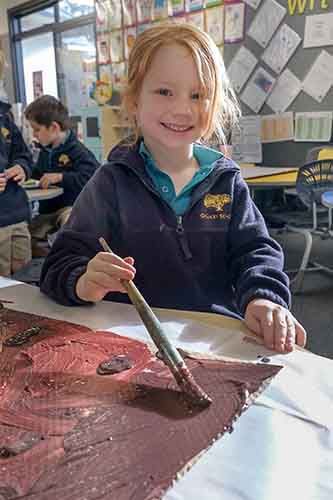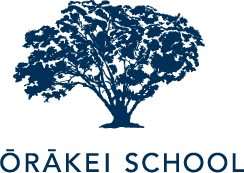Operational and policy documents

The School works with SchoolDocs to maintain, update, and review our policies.
We invite you to visit the site at https://orakei.schooldocs.co.nz/
Username: orakei
Password: orakei
SchoolDocs update modify or create policies in response to changes in legislation or Ministry guidelines, significant events, reviews/requests from schools, and regular reviewing from the SchoolDocs team. Our Board of Trustees has the opportunity to view changes/additions and comment on them before they are implemented. We will advise you when policies are up for review and how you can take part in the review.
School Charter
Orakei School’s charter clearly sets out the Board’s aims and actions to improve student achievement. The charter is clear and concise, and allows parents whanau and the community to easily understand and engage with the school’s vision and values.
Orakei School overlooks the Waitemata harbour and is located in close proximity to Auckland’s commercial district. Close historical and cultural links exist with Ngati Whatua Orakei. With a roll of approximately 350 students our school places great emphasis on engaging our community, providing a welcoming and inclusive environment and creating a ‘family’ atmosphere.
Orakei School acknowledges the principles of the Treaty of Waitangi, the bi-cultural foundations of Aotearoa New Zealand and the ahi kaaroa (long relationship with the land) of Ngati Whatua Orakei. All students have the opportunity to acquire knowledge of Te Reo and Tikanga.
We are a school committed to meeting the needs of all our students in an inclusive and encouraging environment. We have a commitment to a ‘resolution of one’ teaching philosophy where students are aware of their learning journey and next steps.
We aim to be a school that meets the needs of our diverse community and embody our vision of ‘Nurturing Excellence with Kindness’.
Communicating Concerns Regarding your Child
From time to time you may need to communicate with our school in regards to seeking clarification in areas you may have a concern about. Following is the procedure for you as a parent to undertake.
- Contact your child’s teacher by making an appointment with them. This can be done through the school office or by emailing the teacher directly.
- Should your concern require further action please contact your Hub Leader.
- Our school Deputy Principal is: Christine Matijasevich christinem@orakei.school.nz
- If this process has not addressed your concern and you have followed this procedure please make a time to meet with the school principal Mr Shanthan Naidu. Appointments can be made via the school office.
Concerns & Complaints Process
Read more our concerns and complaints process
Important Processes For Communicating With Our School
Communicating the Positives
We love hearing about the great things that are happening for your child at our school. We also love hearing about their personal achievements. During tuning in on a Monday we have time to acknowledge and celebrate achievements from activities that your child achieves and excelled in outside of school. If they have a certificate or award please bring these to the office on a Monday before 8:45am and we will present it in from of the whole school.
If your child shares an area of their learning at school that they love please communicate this to your child’s teacher. It makes a great difference to our teaching team to hear this positive feedback. We also encourage you to meet with your child’s teacher regularly to let them know the areas that they are passionate in. This helps us to plan activities that will meaningfully engage your child in their learning.
GP1 Board Roles and Responsibilities – Standards and Procedures
Standards and Procedures
The standards and procedures associated with the roles and responsibilities of the Board are:
- Set the strategic direction and long-term plans and monitors the Board’s progress against them;
- The Board leads the annual Charter review process
- The Board reviews and sets the strategic aims by December each year.
- The Board approves the Annual Plan and targets and ensures the Charter is submitted to the Ministry of Education (MoE) by 1 March each year
- Regular Board meetings include a report on progress towards achieving strategic aims
- The Charter is the basis for all Board decision making.
- Monitor and evaluate student progress and achievement;
- The Board approves an annual review schedule covering curriculum and student progress and achievement reports
- Reports at each regular Board meeting, from Principal, on progress against Annual Plan, highlight risk/success
- Targets in the Annual Plan are met, the curriculum policy is implemented and there is satisfactory performance of curriculum priorities.
- Protect the special character of the school (Special Character Schools);
- Special character is obviously considered in all Board decisions
- Special character report is included at every Board meeting as part of the Principal’s report.
- Appoint, assess the performance of and support the Principal;
- Principal’s performance management system in place and implemented.
- Approve the budget and monitor financial management of the school;
- Budget approved by in March each year
- Satisfactory performance of school against budget.
- Effectively manage risk;
- The Board has an effective governance model in place
- The Board remains briefed on internal/external risk environments and takes action where necessary
- The Board identifies ‘trouble spots’ in statements of audit and takes action if necessary
- The Board ensures the Principal reports on all potential and real risks when appropriate and takes appropriate action.
- Ensure compliance with legal requirements;
- New members have read and understood the governance framework including policies, the school Charter, Board induction pack and requirements and expectations of Board members
- New and continuing members have kept aware of any changes in legal and reporting requirements for the school. Board has sought appropriate advice when necessary
- Accurate minutes of all Board meetings, approved by Board and signed by Chair
- Individual staff/student matters are always discussed in public excluded session
- Board meetings have a quorum of one more than half the number of trustees of which one must be either Chair or Principal.
- Ensure Trustees attend Board meetings and take an active role;
- Board meetings are effectively run
- Trustees attend Board meetings having read Board papers and reports and are ready to discuss them
- Attendance at 80% of meetings (min.)
- No unexplained absences at Board meetings (3 consecutive absences without prior leave result in immediate step down) Refer Education Act 1989, s104 (1) (c).
- Approve major policies and programme initiatives;
- Approve programme initiatives as per policies
- The Board monitors implementation of programme initiatives.
- Fulfil the intent of the Treaty of Waitangi by valuing and reflecting New Zealand’s dual cultural heritage;
- The Treaty of Waitangi is obviously considered in Board decisions
- The Board, Principal and staff are culturally responsive and inclusive.
- The unique relationship of Ngati Whatua Orakei with the school is considered.
- Approve and monitor human resource policy/procedures which ensure effective practice and contribute to its responsibilities as a good employer;
- Becomes and remains familiar with the broad employment conditions which cover employees (i.e. staff employment agreements and arrangements)
- Ensures there are personnel policies in place and that they are adhered to e.g. Board of Trustees Code of Conduct
- Ensures there is ongoing monitoring and review of all personnel policies.
- Deal with disputes and conflicts referred to the Board as per the school’s concerns and complaints procedures;
- Successful resolution of any disputes and conflicts referred.
- Represent the school in a positive, professional manner;
- Code of behaviour adhered to.
- Oversee, conserve and enhance the resource base;
- Property/resources meet the needs of the student achievement aims.
- Effectively hand over governance to new Board/Trustees at election time;
- New Trustees provided with governance manual and induction
- New Trustees fully briefed and able to participate following attendance at an orientation programme
- Appropriate delegations are in place as per s66 Education Act
- Board and Trustees participate in appropriate professional development.






